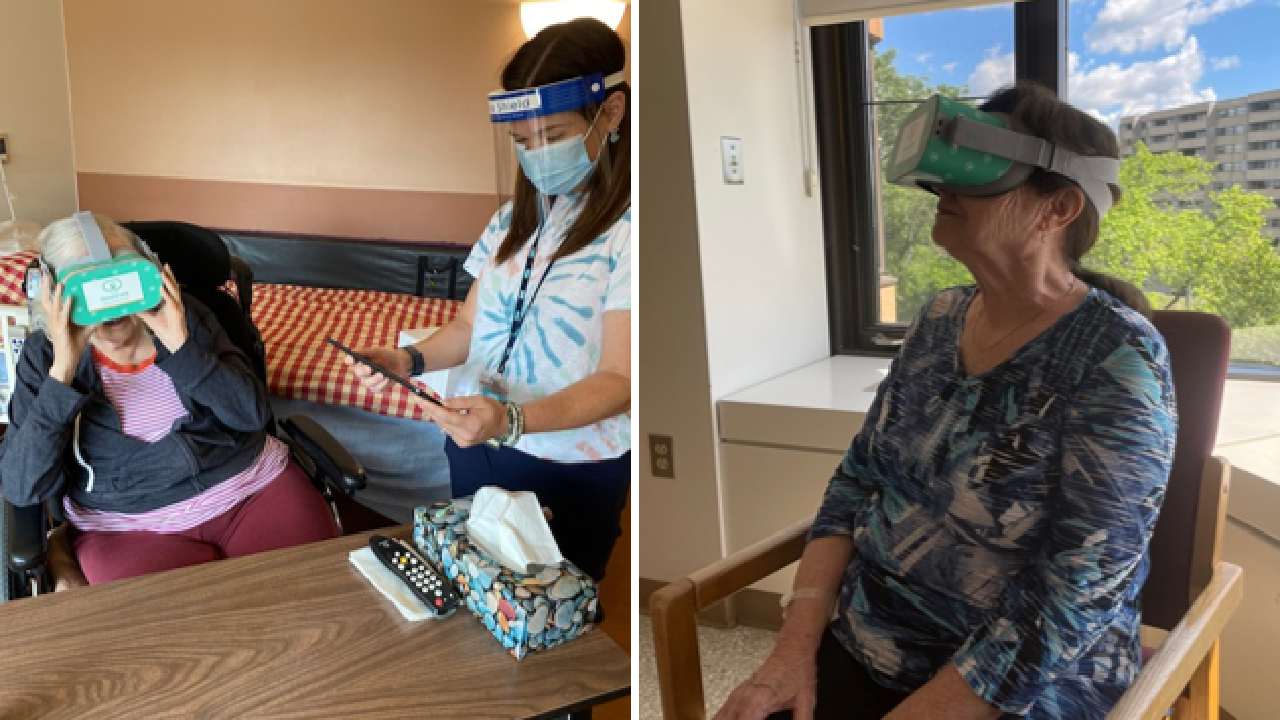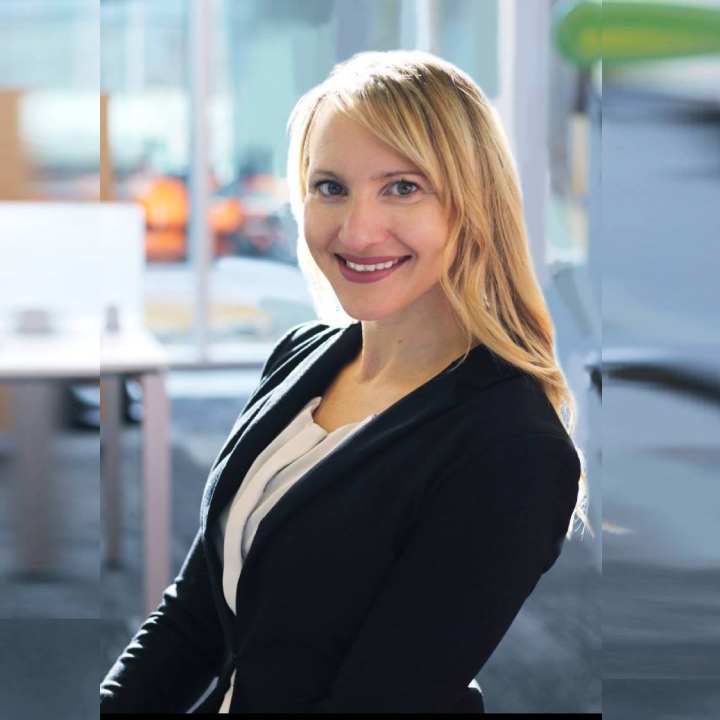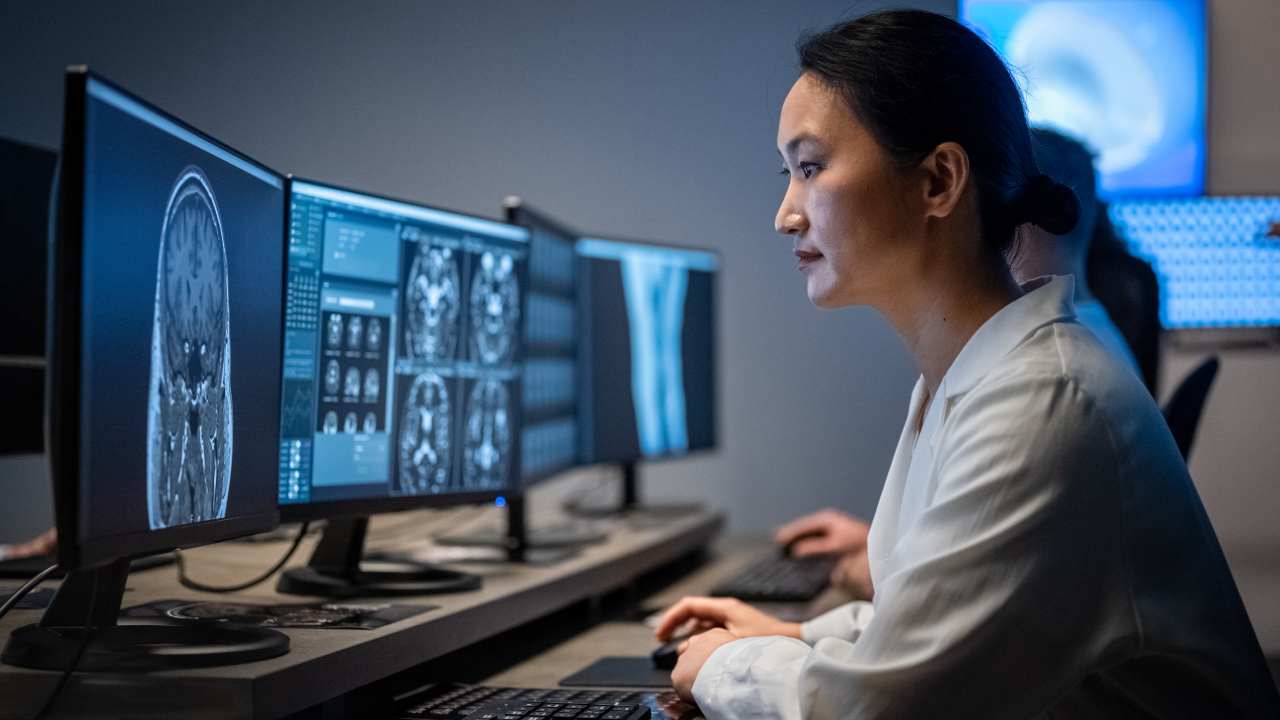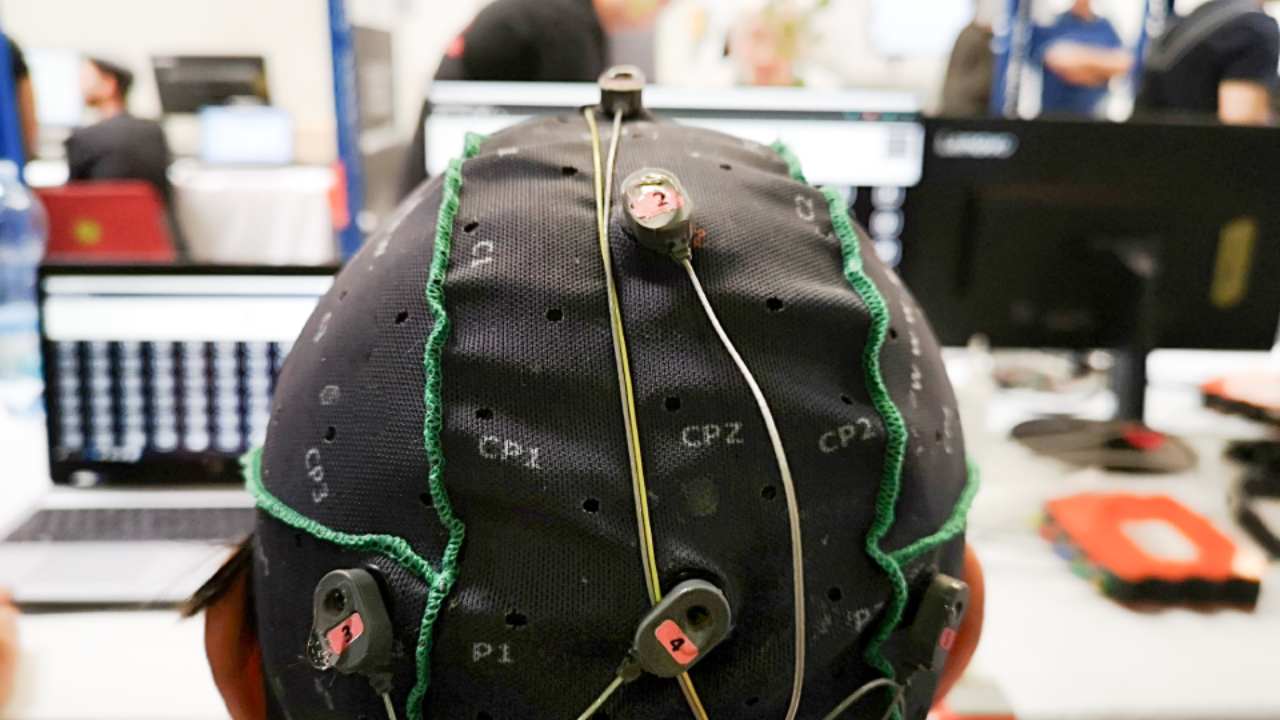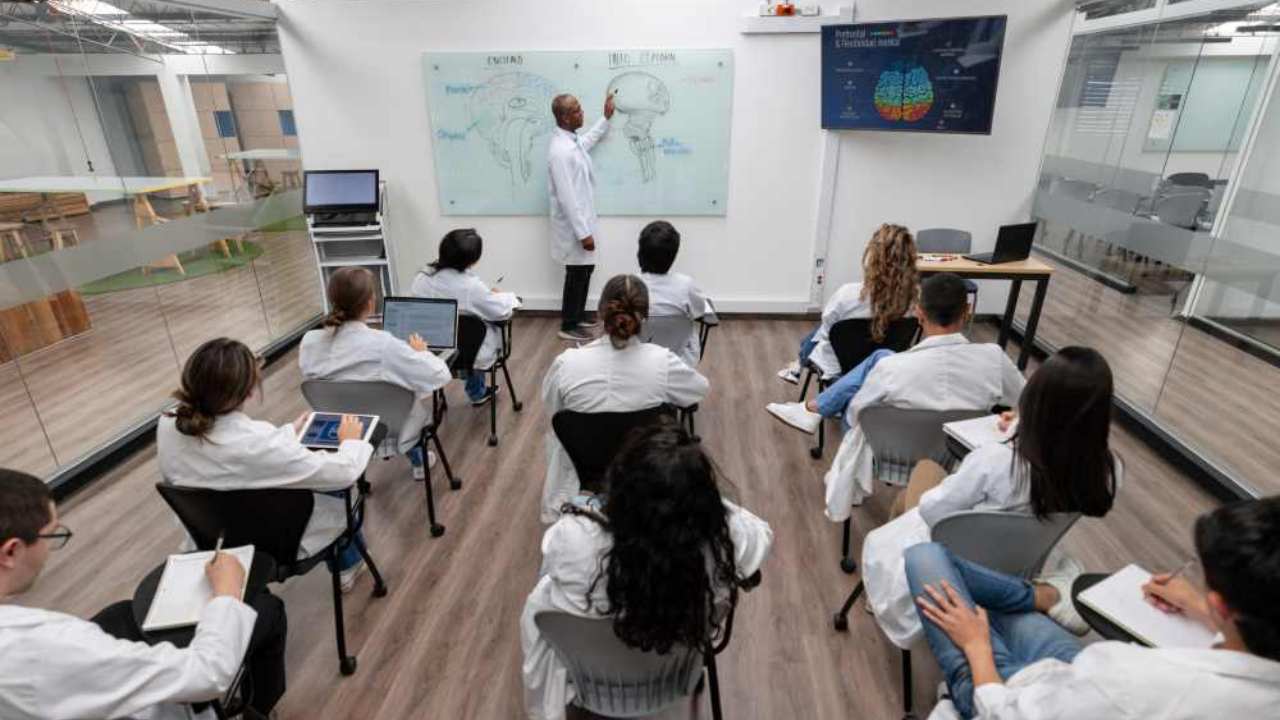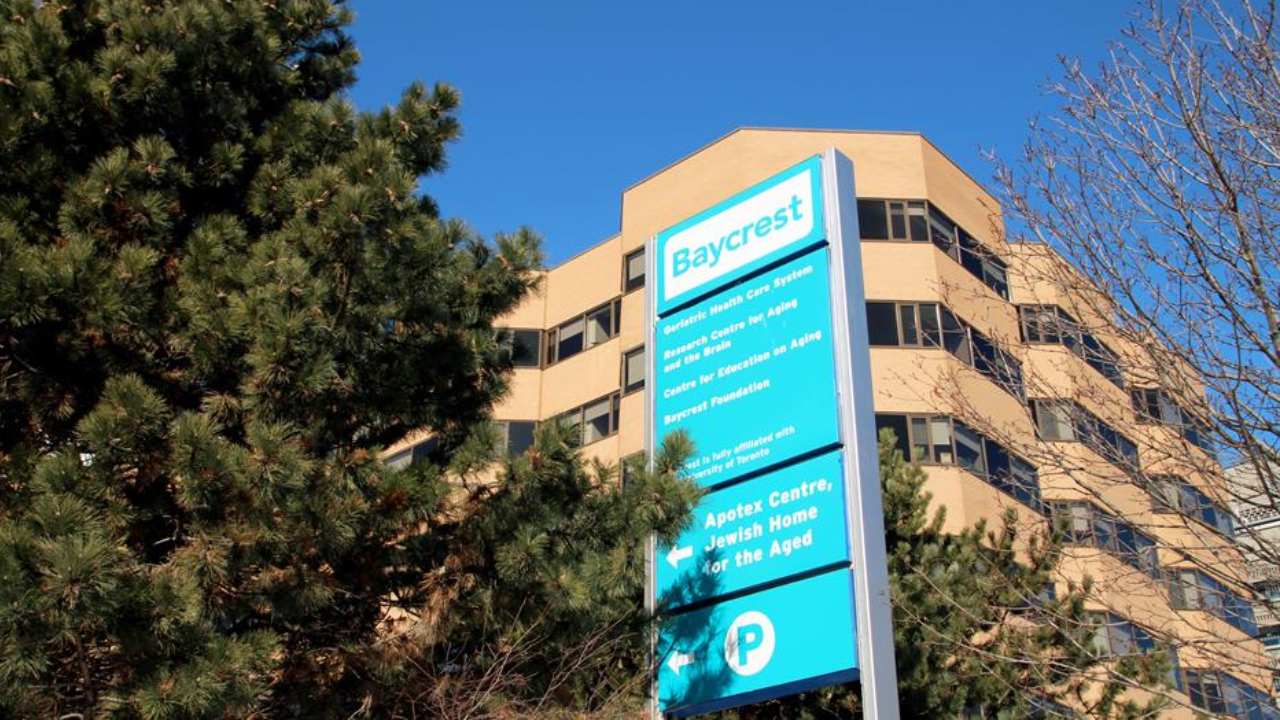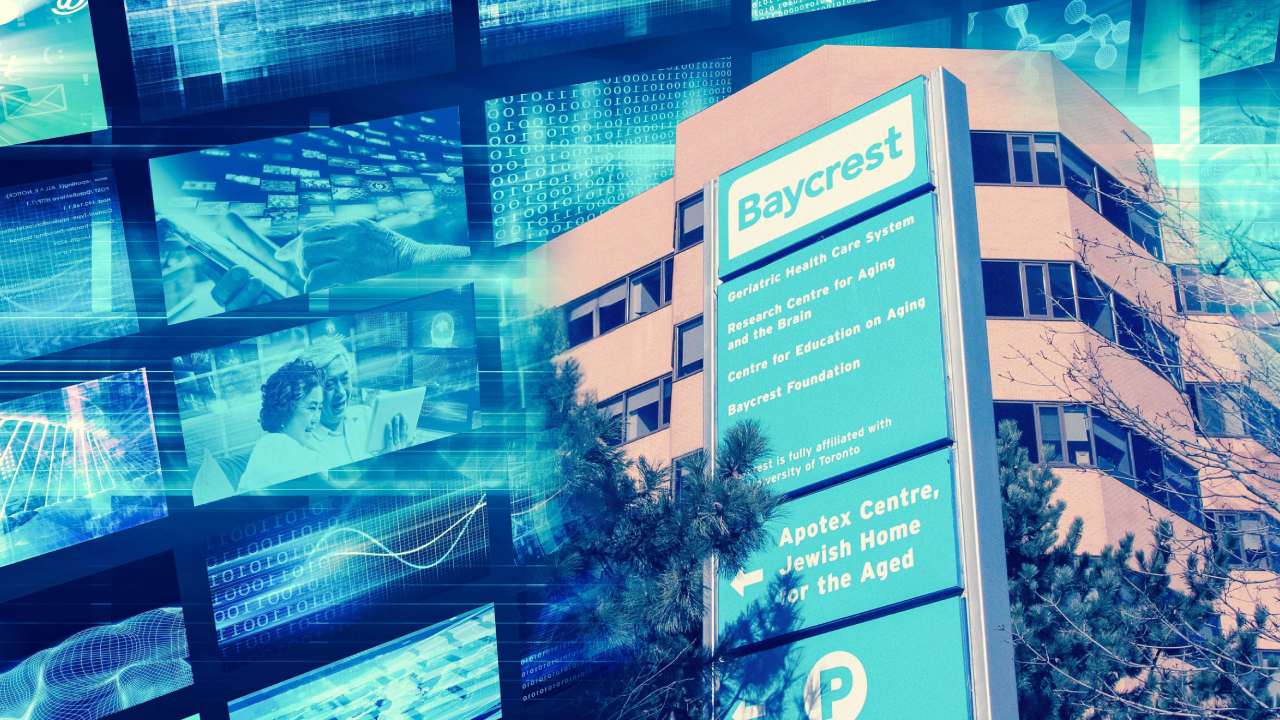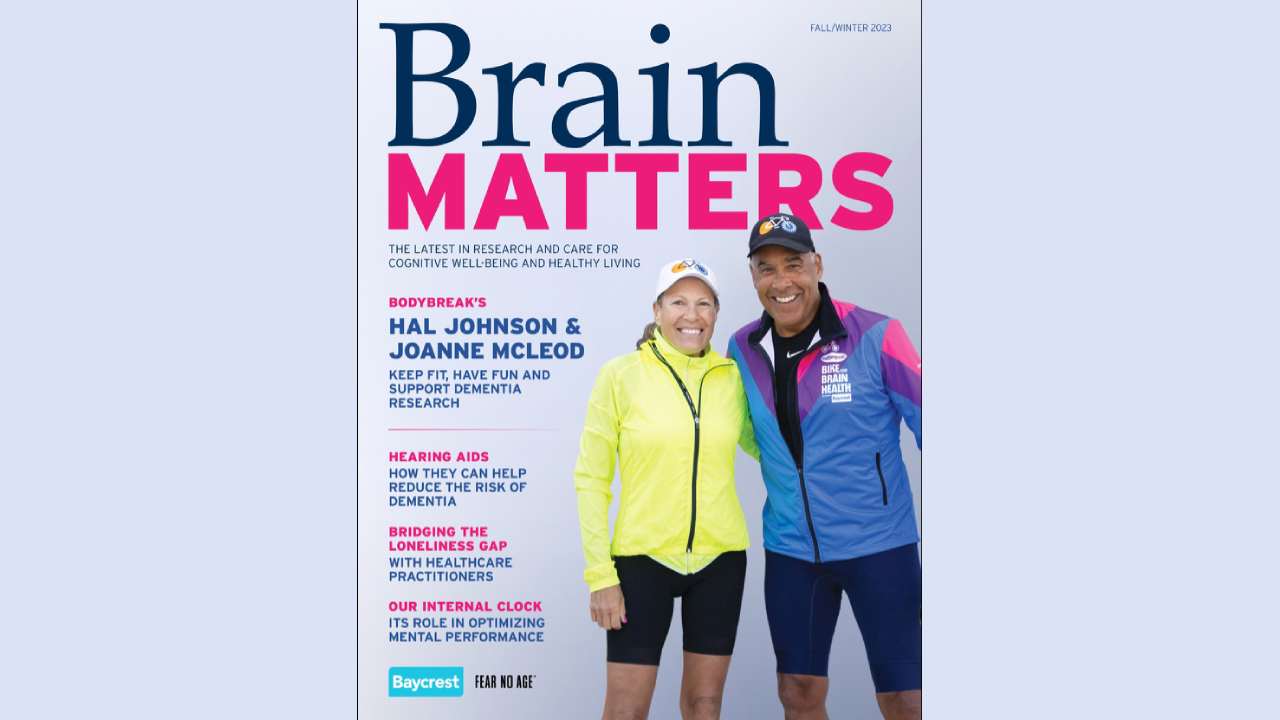Through this virtual reality platform, activities are controlled from a tablet and either enjoyed individually or programmed onto multiple headsets simultaneously for group sessions.
“We always saw the unique potential that virtual reality (VR) has for older adults,” says Ran Manor, Director of Innovation at Baycrest. This potential, as it materializes, is multifaceted. With the technology, for instance, older adults who are too frail to travel can virtually revisit a childhood hometown as part of reminiscence therapy. Dementia patients can relax at a simulated beach to help manage responsive behaviours. Others undergoing physical therapy can play personalized, single-player or team games to practice mobility. The capacity of VR that Manor describes also takes the form of more activities geared towards patients of health conditions, or those simply looking for recreation.
Virtual reality can provide older adults with the chance to enter a world of engaging sights, sounds, and adventures, that would be unknown under other circumstances.
“This is a tremendously helpful tool,” adds Grace Chung, Innovation Partner at Baycrest. “While it is not intended to replace other forms of recreational or care activities, it can enhance quality of life through the expansion of immersive, virtual experiences.” Older adults are not the only ones whose lives will be enriched – their caregivers and loved ones can be impacted as well.
Visitors will have the opportunity to embark on virtual adventures together with residents or patients; from exploring a museum to spending time at the aquarium. Through bonding over special programmed activities, older adults will gain a social connectedness that was once out of reach for them – even before the pandemic – due to limitations, health-related or otherwise.
“I haven’t heard my mom so animated and excited about something in such a long time,” shares the daughter of a Baycrest resident who experienced virtual travel. “She was in such a great mood after the VR.”
The generous donation of VR equipment to Baycrest was made possible through the Scheinberg Relief Fund. Established by businessman and philanthropist Mark Scheinberg and his family, the fund supports strategic, high-impact initiatives in categories, including elderly care, to meaningfully help communities affected by COVID-19.
“We’re interested in bringing innovation to as many people as possible,” says Manor.
Clinical teams are developing protocols and guidelines for the use of the technology across the Baycrest campus, with emphasis on client safety. These protocols take important factors into account, such as side effects, suitability of videos and medical considerations, to make for the most fitting user experience. Virtual reality champions in the Apotex Centre, Jewish Home for the Aged and Baycrest Hospital have come forward to familiarize themselves with the technology; an involvement that Chung describes as “critical to success and driving innovation, because it engages and works with our key stakeholders.”
The project is being rolled out on specific units and floors across the Baycrest campus. “If this is something that will make residents and patients happy for even 20 minutes and positively impact the rest of their day, it’s worth it,” says Chung.
Related Articles: News & Media

